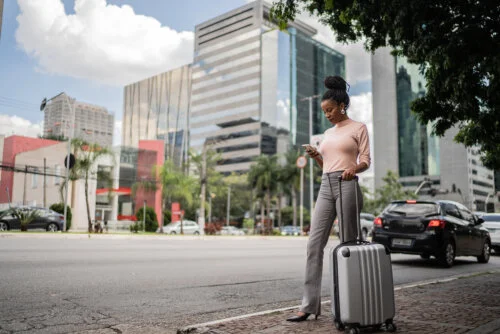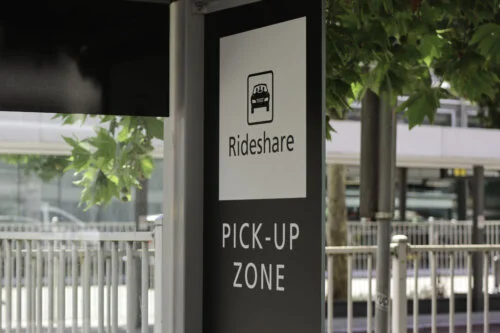
Since the founding of Uber (2009) and Lyft (2012), accidents involving rideshare vehicles have become increasingly common. Rideshare accidents present their own unique legal challenges, which we at Stritmatter Law have experience navigating.
What Makes Rideshare Accident Cases Different?
In some ways, rideshare accidents resemble a typical car accident involving private individuals. Rideshare drivers typically use their own personal vehicles. And rideshare drivers are not required to carry Commercial Driver’s Licenses (CDLs) like professional truck drivers do. Yet rideshare accident cases can be much more complicated, especially when the rideshare driver may be at fault and where the damages are catastrophic.

What if a Rideshare Driver is at Fault?
Since 2015, Washington State law has required rideshare companies like Uber and Lyft (also known as “Transportation Network Companies,” or TNCs), to offer certain minimum liability coverage depending on what stage of the ride the driver is in:
-
- When a driver is logged into a TNC’s “app” but has not accepted a ride request, the driver must have coverage of at least $50,000 per person/$100,000 per accident.
-
- During a “prearranged ride,” which covers from the time when a driver accepts a ride request, to the time the passenger departs the vehicle, the driver must have at least $1 million in total liability coverage.
When a driver is not logged into any TNC’s “app,” the only available coverage may be the driver’s personal automobile policy. By contrast, when a driver is logged into a TNC’s “app,” the driver’s personal automobile policy likely provides no coverage – because such policies usually “exclude” times whenever the policyholder is driving for pay.

What if My Damages Exceed the Rideshare Driver’s Insurance Limits?
One million dollars sounds like a lot. Unfortunately, car accidents can be catastrophic, even deadly, and medical expenses add up very quickly.
In Washington State, an employer is legally responsible for the negligence of their on-the-job employee. This is called “vicarious liability.” But TNC’s like Uber and Lyft have taken great pains to avoid vicarious liability for their drivers. They call their drivers “independent contractors,” not employees. They claim they do not control how the drivers do their work. And after years of legal pressure both in the Courts and in the legislatures, they have designed their driver policies to appear more like “suggestions” than actual rules or requirements.
Our team at Stritmatter Law has experience fighting those claims to obtain just compensation for our seriously injured clients – regardless of the “driver’s” stated insurance limits.
What if I’m in a Rideshare and Another Driver is at Fault?
Unfortunately, many drivers in Washington carry either the minimum required insurance – $25,000 per person/$50,000 per accident – or, worse yet, no insurance at all.
Fortunately, Washington law requires drivers on a “prearranged ride” to have Underinsured Motorist Coverage. Unfortunately, the legislature amended the law, effective June 9, 2022, dropping the amount of required coverage from $1 million, to $100,000 per person/$300,000 per accident. In the end, the amount of coverage will depend on the insurance policy at issue.
The Stritmatter Experienced Rideshare Lawyers Are Here to Help
Our experienced team can assist you by investigating the accident and all avenues of liability and coverage, to ensure you receive just compensation for the damages you have suffered.
To find out what you are entitled to, book your free case evaluation today.
"*" indicates required fields
